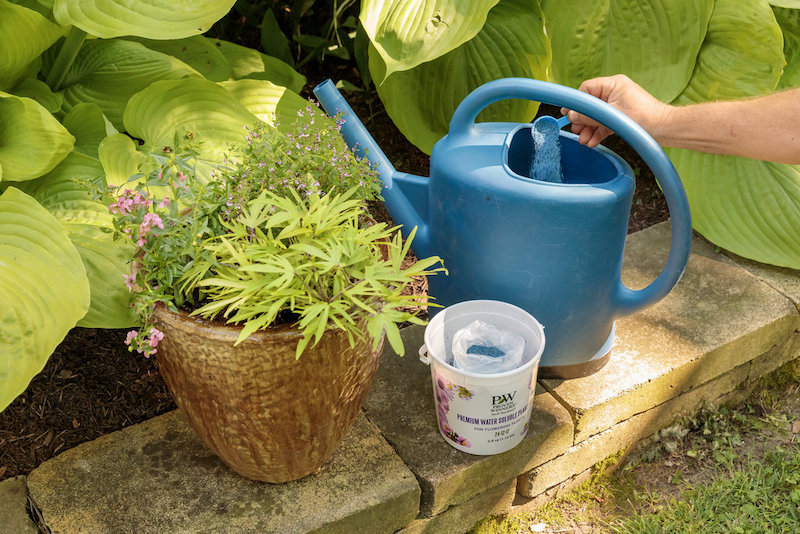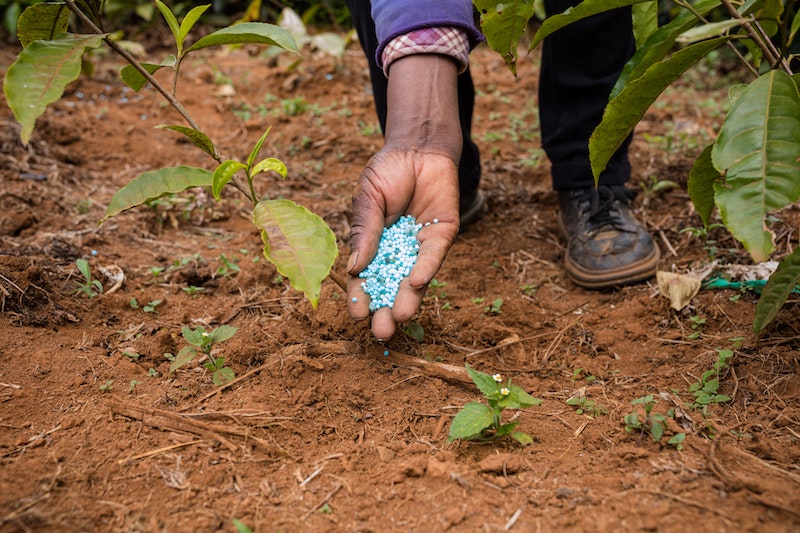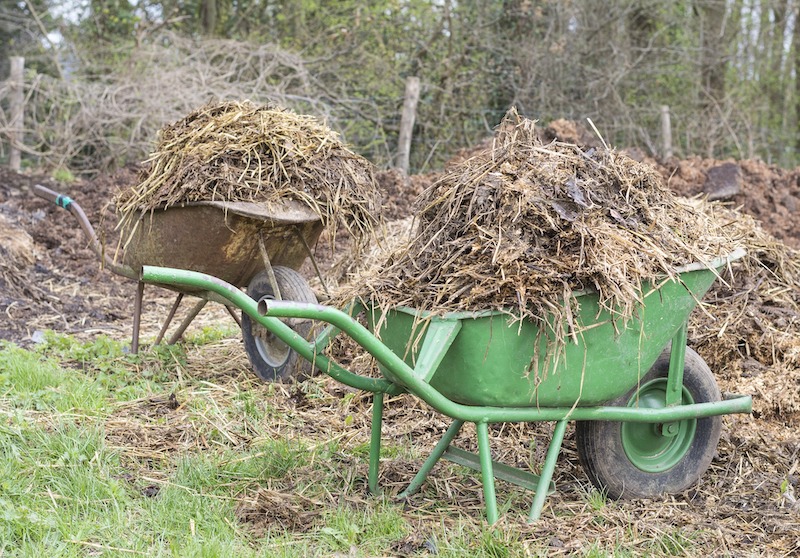Perennials require far less fertilizing throughout a growing season than other heavy flowering plants such as annuals. A single feeding early in the spring or a new topdressing of organic compost often provides enough nutrients to keep perennials thriving. Any plant placed in the right location that satisfies all of its light, soil, and water requirements should thrive and need little maintenance.

How to Fertilize Perennials
Most perennials are adaptable to their surroundings and grow well in a soil pH of 6.0-7.0. Performing a simple pH test for your garden soil will go a long way toward raising healthy plants. If a test reveals an exceptionally acidic or alkaline pH, you can focus on plants that prefer those conditions, which will be far less work than growing plants that require continuous soil amendments. Applying a slow-release fertilizer early in the growing season, when the first new shoots emerge, is the easiest way to feed plants in a perennial border. Spread the granular feed thinly around the root zone of the plants and then water it into the soil well. Make sure to brush off any fertilizer that falls on the foliage, as this can burn tender leaves and shoots.

Best Time To Fertilize Perennials
Perennials grow back every year and generally begin showing signs of new growth early in the spring as the soil warms. Feeding once early in the spring is sufficient for most perennial plants. However, plants that are heavy bloomers (think delphiniums, dahlias, and oriental lilies) will need another one or two fertilizing sessions spread out over the growing season. Fertilizing needs to stop toward late summer so that herbaceous plants can begin to prepare for winter dormancy.

Best Fertilizer For Perennials
The best fertilizer for your perennial plants is one that is easiest for you to use yearly. Slow and continued release feeds provide for a one-and-done application that continues to feed the plants through the growing season every time the plants are watered. A low and balanced NPK ratio of 5-5-5 or similar is the ideal choice for the slow release of nutrients. Organic brands are just as effective at delivering the proper amount of nutrients and are a great choice for the environment. Espoma makes a great range of slow-release fertilizers, such as Plant-tone, for many different plants.
Perennials Fertilizing Tips
- Annual mulching with compost helps to enrich the soil around perennials
- Perennials planted in the correct growing conditions require far less maintenance
- A slow-release, granular fertilizer provides nutrition throughout the growing season with one application
Warnings
-Always wear protective gloves and a face mask when handling chemical fertilizers.
-Closely follow all directions and storage guidelines on the fertilizer label.
 |
Author Robbin Small - Published 1-12-2022 |


